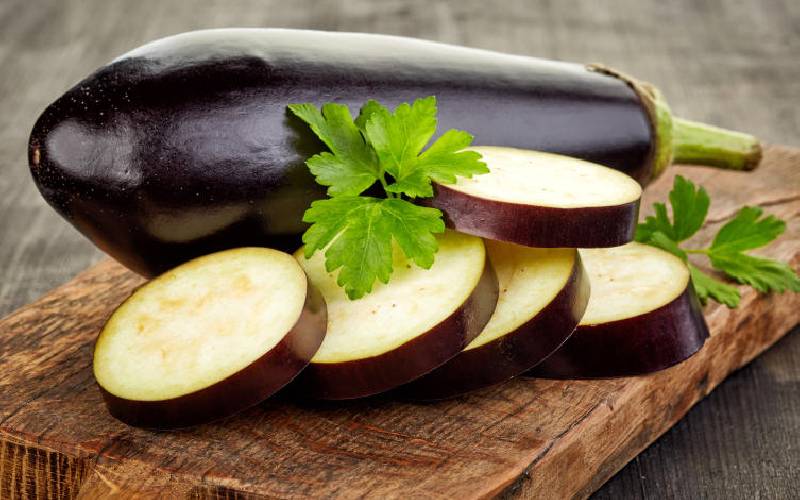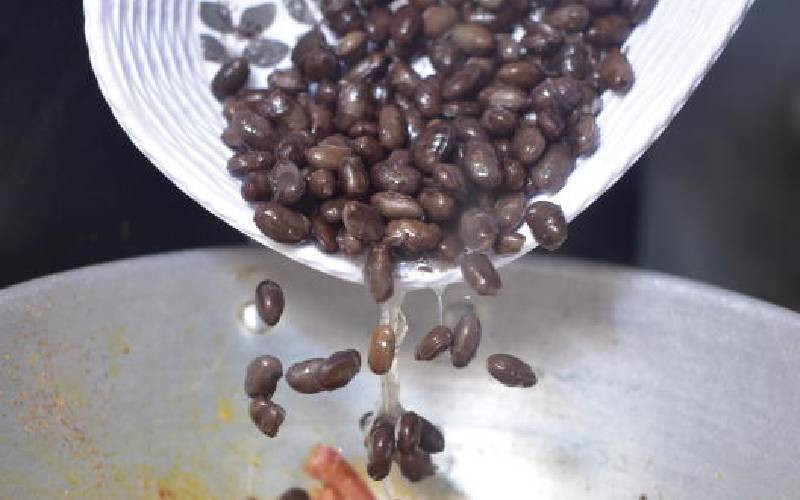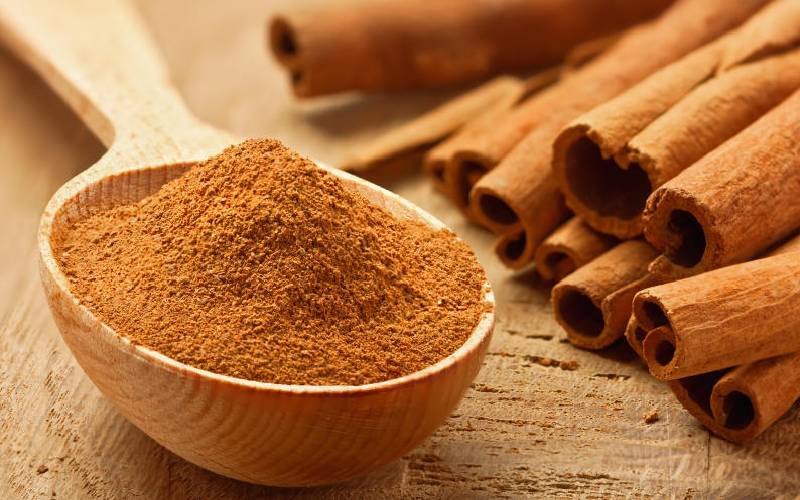
Sliced eggplant on wooden cutting board. [Getty Images]
Eggplant is a member of the Solanaceae family, which includes tomato, potato, black nightshade, sweet pepper and chilli. It is also known as brinjal or aubergine.
It is a perennial crop, with the unripe fruit is consumed as a cooked vegetable. It is low in calories and fats and a good source of vitamins and minerals.
Clement Mwangi, who plants eggplants on smallscale in Kiambu County, outlines what one needs to do from planting to harvesting. Eggplant varieties in Kenya include Black Beauty, Long Purple, Florida High Bush and Ravaya.
Ecological conditions
The required temperature ranges between 25 and 35 degrees celsius. The crop does not tolerate frost but can withstand drought and excessive rainfall. It performs well in well-drained, sandy loam soils with a pH of between six and seven. The soil should be free from plants such as tomatoes, peppers or Irish potatoes for the past three years to avoid potential soil-borne diseases and nematode problems.
Raising seedlings
Eggplant can be established through the nursery or directly seeded. The seed rate is about 200 grams per acre. Prepare a seedbed of one metre in width and a convenient length. Seeds should be sown thinly on rows spaced at 15 cm apart. The shade is erected above the nursery to protect young seedlings, and manure is applied at a rate of three to five kilograms per square metre. “Water the nursery regularly. However, two weeks before transplanting, reduce the frequency of watering and gradually expose the seedlings to sunlight to harden them,” advises Mr Mwangi. The seedbed should be free of weeds and insects.
Transplanting
Seedlings are transplanted three to four weeks after sowing, at which the height of the seedling is about 10cm to 15cm. It is recommended that transplanting should be done either early in the morning or late in the evening. The spacing ranges from 60cm to 75cm (between rows) by 40cm-60cm (between seedlings) depending on the variety.
Fertiliser
The eggplant crop should be fertilised with organic and inorganic fertilisers to produce high yields. Top-dressing fertiliser such as CAN should be applied in two splits at 40kg and 80kg per acre at four and eight weeks after transplanting. “Inadequate top-dressing can result in physiological disorders such as hollow cavities and poor taste in fruits due to potassium deficiency, blossom-end rot due to an imbalance between Nitrogen, Calcium and soil moisture,” says Mr Mwangi.
Pests and diseases
The major pests to look out for are shoot and fruit borer, Epilachna beetle, tobacco whitefly, gall midge, root-knot nematode, spider mite, aphids. Major diseases affecting the eggplant are Alternaria blight, late blight, fusarium wilt and bacterial wilt.
Harvest
The eggplant maturity starts at 60-90 days after transplanting, depending on the variety. Harvest immature fruits before seeds begin to enlarge and harden. The fruits should have a shiny glossy appearance. “Be careful because over-mature fruits are bitter. Yields may vary from 8,000kg to 10,000kg per acre, depending on the variety and crop husbandry,” says Mr Mwangi. A secateur or any other suitable tool is used to harvest fruits. When picking, a 2.5cm-5cm fruit stalk is left attached to the fruit. Fruits should be harvested early in the morning when it is cool since the fruit temperature is low. Keep the harvested fruit in a cool, shaded and ventilated area in order to minimise heat gain.
Market
Mr Mwangi sells a kilo of eggplant locally at Sh110 through social media and referrals. “The export market is also available for those who want to expand their market base, of course after fulfilling the requirements,” he notes.
 The Standard Group Plc is a multi-media organization with investments in media platforms spanning newspaper print
operations, television, radio broadcasting, digital and online services. The Standard Group is recognized as a
leading multi-media house in Kenya with a key influence in matters of national and international interest.
The Standard Group Plc is a multi-media organization with investments in media platforms spanning newspaper print
operations, television, radio broadcasting, digital and online services. The Standard Group is recognized as a
leading multi-media house in Kenya with a key influence in matters of national and international interest.











